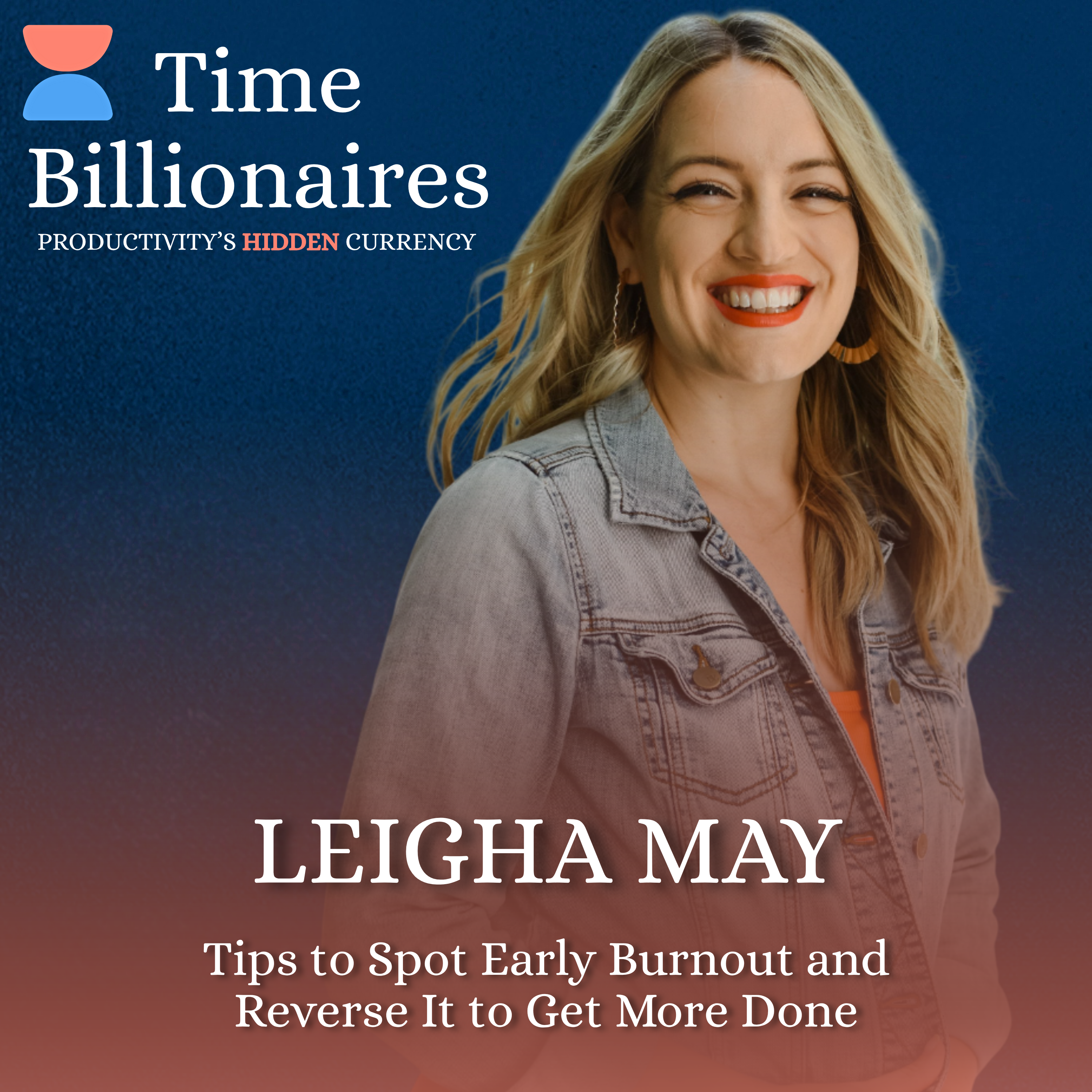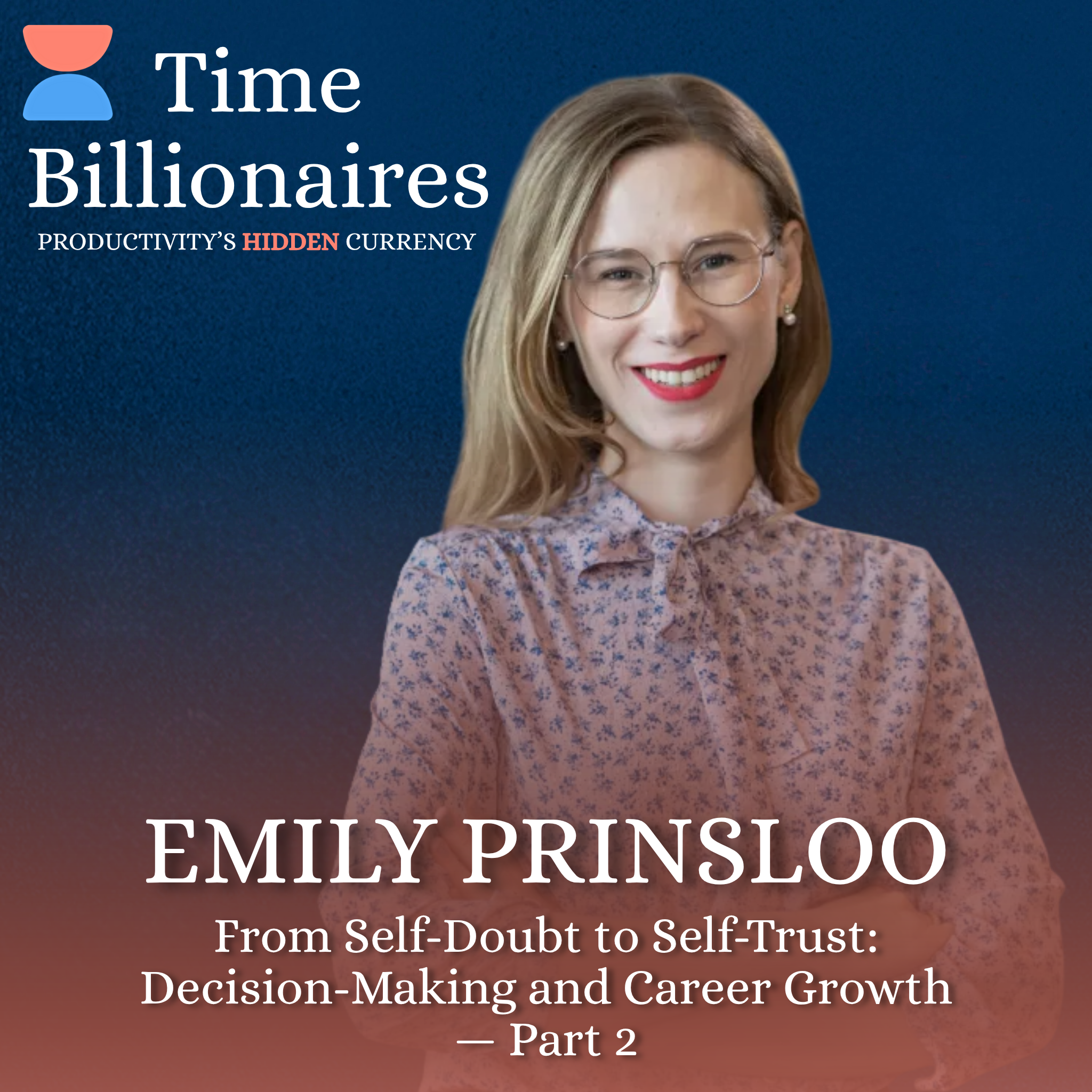[00:00:00] Speaker A: It's not about leaving big legacies, but it's about all the micro things you do day in, day out. If you have the influence and where you can lead and leave a massive legacy, do that. But for everyday humans, it's really about all the micro things you do. Your value system, your ethics, the conversations that you have with people, the feelings that you leave them with. And so this idea of micro legacies is that is think about all the little things you can do in your day. The more micro legacies we can leave behind, the world is going to be in a better place.
[00:00:43] Speaker B: Today's guest is Michael Barber. He's the Chief marketing
[email protected] and has over 20 years of experience leading marketing teams. His work has been featured in places like the New York Times and Forbes. He's known for helping companies grow while making sure their teams actually enjoy the ride.
When he's not leading big campaigns, you'll find him hanging out with his husband, Samuel, and their dog Manny, searching for the perfect cold brew or off on an adventure involving planes, trains, and a great playlist. Thanks for joining us, Michael.
[00:01:12] Speaker A: Thanks, Rebecca. It's good to be here.
[00:01:14] Speaker B: I'm so excited for this and I really would love to start with your concept of micro legacies, which is something you shared with me and has changed the way I think about a lot of my micro interactions.
[00:01:24] Speaker A: Yeah, this is something I've done a lot of thinking about over the last few years as I've gotten older. And I think the lens to sort of frame up this conversation, conversation that's helpful is to kind of look around at, you know, places that we are undoubtedly absorbed with right now as sort of a society and that is influencers. And the impact that those influencers have on society or big names celebrities have on society.
And I think very much like anyone who is absorbed around and has to spend a lot of time in culture and in social media, it's really easy to play the comparison game where you are seeing either a celebrity, a leader, a business leader, a geopolitical leader, or an influencer making big impacts on the world.
And I think a lot of the times we look at that influence and that impact and we think, why aren't, why can't we do those things? Like, if I can't do those things, I am therefore not as good as that person.
And I think as I've aged, the thing that's really resonated with me is that it's not about leaving big impressions and big legacies. Yes. If you have the Influence and the celebrity or a role inside of a massive organization where you can lead and leave a massive legacy, do that. But for us everyday humans, because there's vast majority of us everyday humans, comparatively against the sort of influencer celebrity leader group, that it's really about all the micro things you do day in, day out, right. Your value system, your ethics, the conversations that you have with people, the feelings that you leave them with. And so this idea of micro legacies is that is think about all the little things you can do in your day. Right. It can be holding the door open for someone and that being a thing you do all the time.
It can be making sure that as you open a teams chat or a zoom call, right, you engage that person on the other end about what's happening in and around their life.
It can be listening more than it is talking. Right. Like figuring out those little things that we can do to impact people. I think leaves gives us an ability to frame our impact around the world that much more sort of healthy and holistically.
And certainly I think, you know, I, I can't say there's any research behind this, but certainly I think the more micro legacies we can leave behind, the world is going to be in a better place.
[00:03:54] Speaker B: Yeah. It's hard to imagine that not being true. Right. If everyone goes through every interaction with the intention of leaving a positive impact, even if it's tense, how can I have an important, constructive tense conversation respectfully and productively as possible? How could the world not be better for that intention?
[00:04:14] Speaker A: Yeah.
[00:04:15] Speaker B: Yeah. And something I came across in research is the concept that the more time starved we feel, the more time poverty we feel, the less patient and the less generous we tend to be with our time. There was a study that volunteers were enlisted to go give a lecture on being a Good Samaritan to elementary school students. And in the course of their process, half of them were told that they were late, and half of them were not told that they were late. And they came across people in their path between where the experiment started and where they were going who needed help. And the people who were not told that they were late were almost three times as likely to actually stop and help and be a Good Samaritan as those who thought they were late to go give a lecture on being a Good Samaritan. So what our task feels like can be distracting sometimes from what I think you're saying is the intent of our legacies, which is where I'd love your thoughts on how you think about regaining control of A hectic schedule or something you'd recommend people do if they feel like their schedules are just too hectic, for sure.
[00:05:17] Speaker A: So I was, I was lucky. I worked for a creative director many, many, many moons ago, because this was early in my career who gave me this framework. And I've used it ever since then. So almost 20 years at this point. And it's three Ds, do it, delegate it, or drop it. That has become the framework that guides basically everything that I do from eight to five.
I will say my eight to five sometimes blurs. I say that as just like a colloquial analogy. But do it, delegate it, or drop it. And what I mean by that is that at every moment where you're feeling like you're time starved, it's probably for a lack of the ability to make a decision about what to do next.
We have to be ruthless with the frameworks that guide all the nuances in between the seconds of our day. Otherwise, time just slips away. And if there's anything that I know beyond some thoughts around legacy building and micro legacies, is that time is the most valuable human asset that we have at our disposal and we got to use every single second. I think I described it, somebody described it to me the other day that sat with me also really well. Like, on average, you have 80 summers. I'm 41 this year, almost 42. And I'm like, I'm more than halfway through my summers. I've got to make these summers count, right?
And that do it, delegate, delegate it, drop it framework has really allowed me at a very tactical level in my day to decide how I approach almost everything that's occurring.
So I'll give you a very, very specific example. With every email I read it, once I make a decision, do I need to come back to it? Okay, it gets filed. Do I drop it and not respond? It gets archived. Do I delegate it? Does it get forwarded to the right person to answer those things?
Especially in corporate America or really corporate environments in a lot of places. But ironically in America, because we are largely the most overworked society in the world, you are getting any number of disturbances, whether it is teams, slacks, zooms, emails. You have to create a framework that works for you to get around that sort of time debt that you're always going to be facing. And for me it's been that. So it is a decision and a framework around everything we work in Asana. When I see something come into Asana that's assigned to me, again, it is a. I'M either going to address it, I'm going to delegate it, or it's getting moved off.
And that's just what's worked for me. I was lucky to learn that sooner rather than later, I think. But we get an enormous amount of inputs every single day, whether it is work inputs or personal inputs or all the media and messaging that's happening around us. And if we don't have something that allows us to decide where our attention is going to go, we will lose the time race. And I think, yeah, and I think for me that's where I've. That's the framework I use. It's worked for me. But there's tons of different ones that are out there. That of course can be heavily debated as well.
[00:08:08] Speaker B: Yeah, I call those one touch tasks, things that don't get better the more you touch them.
Wedding RSVPs and planning and buying gifts for friends are one touch tasks. They don't get more thoughtful, more effective, less expensive the more you come back to them. And the difference between invitation comes in, we send the gift, make the plans, do it all at once in a two hour block request PTO or hey, you want to go, let's do this over months is massive. And then the plans. But that's a. I love that framework you said in your 8 to 5, but then you talked about personal a little bit. So do you have a different approach when you think about the 3Ds personally and at work?
[00:08:48] Speaker A: For sure. I think context is always important with the 3Ds outside of work. Right.
There's going to be certain friends or family members in your life that you can't delegate certain things to. Right. So sometimes the framework's going to break down there. But I think the essence of deciding what you're going to do next in personal time is just as important of what you do in that eight to five time. Right. Because we spend an enormous amount of time outside of our working life, hopefully getting the chance to spend time with our family, friends or ourselves and doing things that we enjoy. And you need to be just as intentional with that time as you are with your work time. Because there's certain priorities. If you're going to set certain priorities for yourself, you've got to make sure you're actioned on those priorities in a way that allows you to get them done or have those activities outside of your 8 to 5.
[00:09:44] Speaker B: Part two of this two part episode is coming to you next week.


